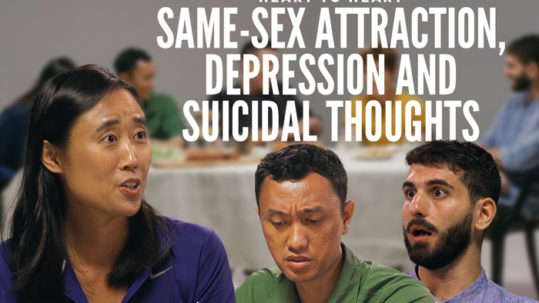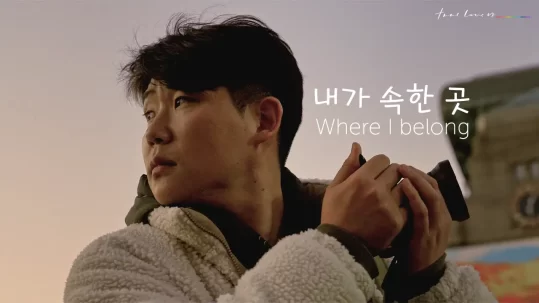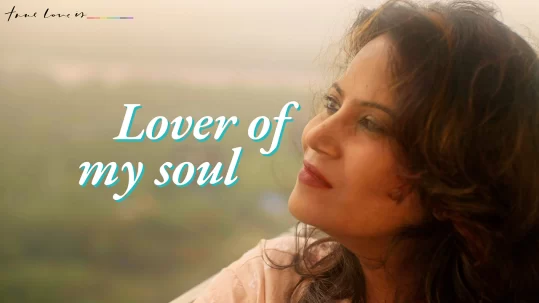20 Apr How to Talk to Your Primary School Kids (7-12 yrs) About Homosexuality

Setting the big picture about love, relationships and marriage will give your children a framework for thinking about these important issues. God has given humanity a number of good gifts, including marriage, love, friendship and family. As in the previous section, we want to start with God’s good intentions before discussing problems and sin.
Borrowing on C.S. Lewis’ ideas from The Four Loves, this would be a good age to explain to your children that there are different types of love:
- Our “love” (or liking, really) for food, things and activities.
- Love for creation, including our care and concern for animals, pets and the environment.
- Friendship and love for our friends.
- Love for family: parents’ love for children; children’s love for mom and dad; brothers’ and sisters’ love for each other; love for other relatives.
- Marital love, which includes romantic or sexual love, the love between a husband and a wife.
- God’s love for us and our responsive love to Him.
Children can compare and contrast these types of love, and you could discuss the different types of responsibilities and activities associated with these different levels of relationship.
Marital love has purposes and characteristics that are distinct from other loves. As appropriate, talk to your children about these marital traits, including:
- Permanence: Friendships may change, but marriage should last a lifetime.
- One man/one woman (monogamous): We may have lots of friends, children and family members, but only one husband or wife.
- Male and female: God separated humanity into male and female, marriage brings those back together as one.
- Oneness: Marriage unites a couple in a special way; that’s why sexual expression is intended only between a husband and wife. Intimacy, pleasure and joy are a significant part of the marital union.
- Familial: Marriage between a man and a woman often brings forth new life—children.
- Symbolic: In the Bible, marriage is the primary picture of our relationship with God.
- Glorifying God: Because God designed marriage, when we follow His intentions we bring glory to Him.
We all need God’s help setting our love in order.
Sadly, these good gifts from God are often misused because of human weakness and sin. Explain that, as part of humanity’s disobedience, love can be disordered, out of bounds or inappropriate.
Same sex marriage is one distortion of God’s design for human love. Two men in a ‘marriage’ relationship are missing something—the femininity of a woman. And two women who live as if they were married and raise a child together are depriving that child of the masculinity of a father in their home.
We all need God’s help setting our love in order. These various loves are designed to help lead us to the highest love—love for God. The good news is that through a relationship with Him, we can learn to love rightly, even loving those who don’t follow God’s plan.
Your children need to hear from you directly that they may safely talk to you about difficult issues.
Basic Concepts
- Your children need to hear from you directly that they may safely talk to you about difficult issues. Don’t assume: Ask questions, listen well and encourage them to speak freely.
- They’re also watching to see how you interact with others. Do you love and respect others? Do you speak truth courageously and gracefully?
- People are worthy of respect. As followers of Jesus Christ, we don’t bully other people or use demeaning terms or expressions.
- You’re now expanding their knowledge of male and female differences, why these matter, and how marriage brings the two halves of humanity together.
- Even human love—every type of love—has been damaged and affected by the Fall. That’s why we don’t just follow our own thoughts and feelings, but we emulate Christ’s example and follow biblical teaching.
- Prepare your children to understand that not everyone has a Christian worldview, but we love and respect them.
Real-Life Scenario
Prepare your children to understand that not everyone has a Christian worldview, but we love and respect them.
You’re watching a television show on cable TV as a family. Your children are staring at the screen when the scene changes to two men holding hands while a pastor performs their wedding ceremony. Your children turn to look at you for a response.
Possible Responses
These depend on the ages of your children, their level of concern and their verbal and abstract ability:
- “We’ve talked about how God made marriage to be between a man and a woman. That’s what the Bible teaches. But because of Adam’s sin, the world is not as it was meant to be. Some men, because of the presence of sin in the world, want to marry other men. Some people agree with them, and are even willing to change God’s design for marriage to have two men get married.”
- “You know how we’ve talked about different kinds of love, like friendship and marriage? God’s design is like a road that—as we grow up—leads us to the marriage kind of love for someone of the opposite sex. But because of sin, the road is not as safe or direct as it should be. So sometimes boys or girls get off that road and grow up wanting to marry someone like themselves rather than the opposite sex.”
- “Marriage has always been what brings together a husband and wife—that’s God’s intention. But this world is not perfect, and not everyone follows God’s design. Some people have tried to change marriage so two men or two women can marry each other. The Bible says that’s not good.” Why don’t we pray right now for these men to come to Jesus and learn to follow God’s plan for their lives?”
Real-Life Scenario
Your 11-year-old daughter comes home from school. She is very quiet and seems upset. You ask what’s going on, and finally she blurts out, “Well, I was talking to Olivia at recess and some girls called us ‘les.’ What’s a ‘les’?” (Olivia is your daughter’s best friend.)
Possible Responses
- First, stay calm, keep cool and pray for wisdom. Then, ask your daughter questions, such as, “What do you think that word means? How did you feel when those girls called you names?” After she has a chance to describe her thoughts and feelings, you might give a simple explanation, such as, “That word is used to attack and belittle people. It’s short for ‘lesbian,’ which means a woman who has romantic attractions toward other women.”
- “Your friendship with Olivia is good. It was wrong of those girls to bully you and Olivia and call you names. Most girls your age have other friends who are girls, and sometimes they even have a ‘best friend.’ That’s really good and healthy. You and Olivia are precious and valuable to God.”
- “Words can really hurt, can’t they? Did you know that Jesus was called all kinds of names, too? He knows how you feel and wants to comfort you. Let’s pray right now to take those words off you and place them on the cross. Then, Mom and Dad will bless you by praying good words over you.”
- “I’m so sorry that happened to you and your friend. Mom and Dad want to protect you as much as possible, so we’ll be talking to the school about working to keep students from hurting other kids with mean words.”
- “Because people are made in God’s image and are very precious, it’s wrong for anyone to call people mean names or bully another person. It’s also important, when we are hurt, to work through to the point of forgiveness. Forgiving someone doesn’t mean that you don’t hold them accountable or try to stop them from hurting you again, but that you release them from your judgement. When you’re ready, let’s talk more and pray about forgiving those girls.”
Sadly, our hyper-sexualised culture is ready to steal innocence from children. And the rapid rise in visibility of homosexuality makes it all too easy for some to cast a shadow on the goodness and necessity of same-sex friendships. Same-sex friendships are a vital part of growing up, an integral part of the developmental process where girls identify and connect with other girls, and where boys connect and compete with other boys.
This is a stage where children may be hearing or seeing new homosexuality-related words from neighbours, classmates, television or social media. If you hear them using inappropriate language, this would be the time to explain that God loves all people and they are worthy of being treated kindly, so we don’t use unkind words. Words are powerful and can hurt people.
You might also ask your kids questions, “Where did you hear that word? What do you think it means?” Then, you might have a short, frank discussion about God’s design for healthy relationships and marriage. You can explain that those words describe things that go against God’s design.
Some older children, especially those who understand how reproduction takes place, may ask about the sexual activity of homosexual men and women. Of course, answering this question is up to your discretion, but we suggest reminding children that when a husband and wife unite sexually, they form a single reproductive unit; their bodies were made to fit together naturally. Same-sex couples can never form a reproductive whole. You might tactfully and carefully tell them that homosexual activity is fundamentally different from a marital union.
Word of Caution
We suggest not saying something like, “Those men are gay. Gay is when two guys like each other.” That’s confusing to boys, who at this age are developing a stronger internal sense of masculinity—primarily through distancing themselves from girls and identifying with and relating to other boys and men.
The same would apply to girls. We suggest you avoid such statements as, “Being homosexual or lesbian is when two girls like each other.” This takes what is a normal, healthy developmental stage—girls liking and connecting with each other or following older girls as role models—and equates it with homosexuality.







